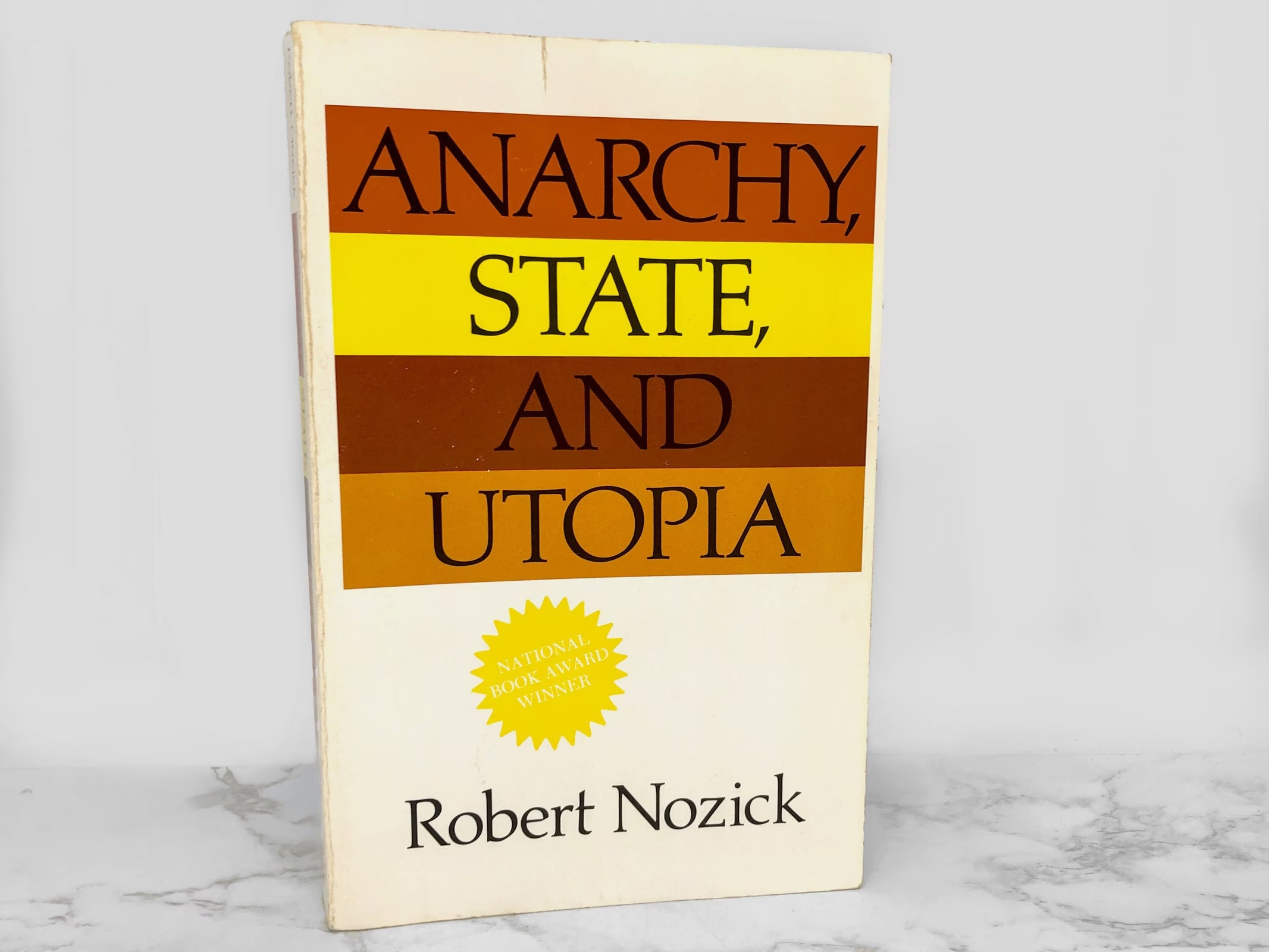In the annals of libertarian political philosophy, Murray N. Rothbard stands as a towering figure, known for his uncompromising advocacy of anarchism and his sharp critiques of statist ideologies. One of his most notable engagements was with the work of Robert Nozick, particularly his seminal book, Anarchy, State, and Utopia. While Nozick’s work aimed to provide a justification for the minimal state, Rothbard dissected and ultimately dismantled Nozick’s arguments with precision and rigor.
At the heart of Nozick’s thesis lies the concept of the minimal state, a government that exists solely to protect individuals and their property rights from coercion and aggression. Nozick’s framework begins with a hypothetical state of nature, where individuals form protective agencies to safeguard their rights. Over time, these agencies evolve into a dominant protective agency, which eventually transforms into the minimal state through a series of steps.
Rothbard, however, wastes no time in exposing the flaws in Nozick’s reasoning. In his “Robert Nozick and the Immaculate Conception of the State,” he critiques Nozick’s reliance on the compensation principle, arguing that the extension of protection as compensation by the dominant agency is inadequate. Rothbard asserts that cash compensation, which leaves individuals free to buy whatever they wish, would be far superior. Additionally, Rothbard questions Nozick’s failure to consider the implications of taxation and the lack of clarity regarding the provision of protection by the minimal state.
Furthermore, Rothbard challenges Nozick’s concept of “procedural rights,” arguing that genuine rights do not require positive action from others. He highlights the absence of a coherent theory of rights in Nozick’s framework, undermining the foundation of his arguments. Rothbard also critiques Nozick’s treatment of “non-productive” exchanges and the prohibition of risky activities, exposing logical inconsistencies and fallacious reasoning.
One of Rothbard’s most devastating critiques is aimed at Nozick’s “invisible hand” process, which supposedly leads from the minimal state back to anarchism. Rothbard argues that this process is conscious and visible rather than spontaneous, rendering it invalid. He highlights the flaws in Nozick’s risk and compensation principles, demonstrating that they are passports to unlimited despotism rather than safeguards against it.
In summary, Rothbard’s critique of Nozick’s arguments for the state in Anarchy, State, and Utopia is comprehensive and damning. He exposes logical inconsistencies, fallacious reasoning, and fundamental flaws in Nozick’s framework, ultimately dismantling the foundation upon which the minimal state rests. Rothbard’s unwavering commitment to anarchism and his incisive analysis serve as a reminder of the enduring importance of questioning state authority and advocating for individual liberty.
As libertarians continue to engage in debates about the nature of government and the legitimacy of state power, Rothbard’s critique of Nozick’s arguments remains a formidable intellectual challenge. By revisiting Rothbard’s insights, we can gain a deeper understanding of the flaws inherent in statist ideologies and reaffirm our commitment to the principles of liberty and voluntary cooperation. Against the state, Rothbard’s legacy endures as a beacon of intellectual integrity and principled opposition to coercion and tyranny.
As an interesting concluding note, David Gordon at Mises reminds that Nozick once remarked that it was “a long conversation…with Murray Rothbard that stimulated my interest in individualist anarchist theory.” Further, he observes that “the entire first part of Nozick’s book is an attempt to come to terms with Rothbard’s argument,” and hence might well have been called “Why I am not a Rothbardian.”
He should have been.
As Rothbard notes cuttingly at the outset, all theoretical sophistries about the “Immaculate Conception of the State” aside, “for every State where the facts are available originated by a process of violence, conquest and exploitation: in short, in a manner which Nozick himself would have to admit violated individual rights.”
































